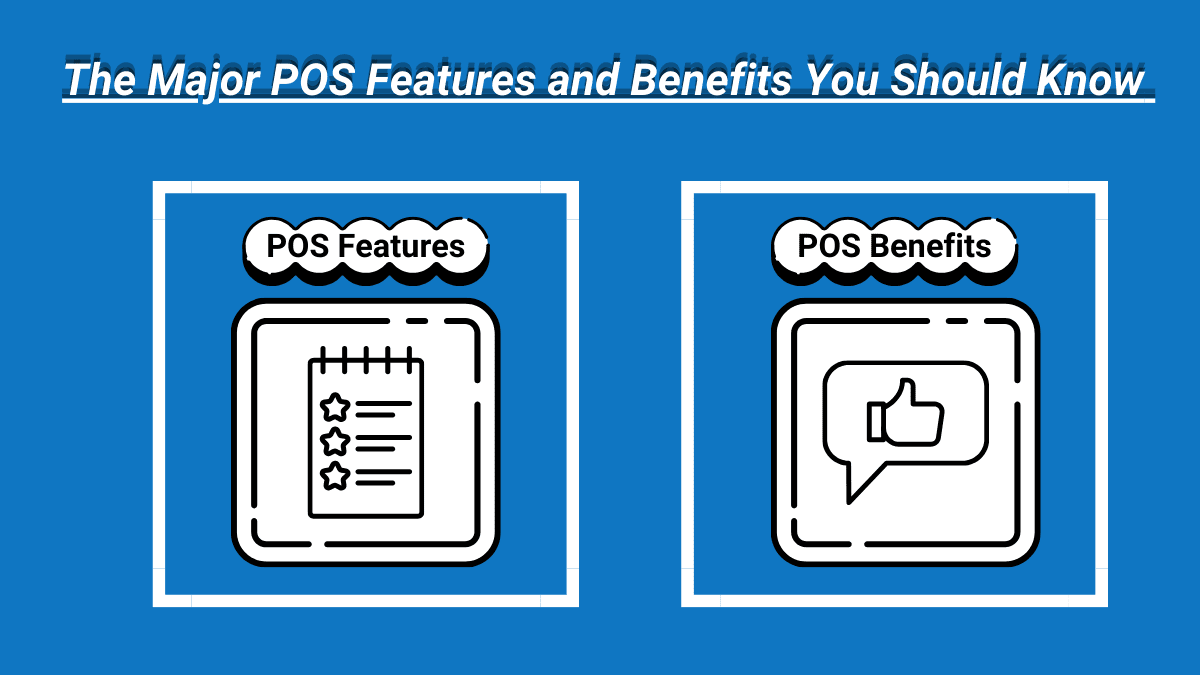
The Point of Sale (POS) system has become indispensable for businesses because of its convenience and benefits. An easy-to-use POS system is more in demand in the market. Although most POS systems have standard basic features and advantages, they are still vital for contemporary businesses.
In this article, we will delve into the features and advantages of POS systems.
Features of POS System
1- Inventory and Stock Management
Managing inventory and stock is essential for POS systems. It helps keep track of stocks in real time, making sure everything is transparent and accountable.
Moreover, it keeps your inventories safe, reduces waste, predicts what you’ll need in the future, and checks if you have enough stock to meet customer demands.
2- Loyalty Programs and Gift Cards
Loyalty programs and gift cards are now standard in most point-of-sale systems as clever ways to keep customers returning.
They help businesses understand what customers like, which can make things run smoother.
3- Dashboard
Point-of-sale systems have dashboards that show you how your business is doing. They give you all the details about what you’ve sold and what’s in stock.
4- Customer Relationship Management (CRM)
Collecting and handling customer information is crucial for a business to grow and make more money. CRM helps businesses communicate better with their customers.
5- Consistent and Personalized Reports
Many point-of-sale systems can customize reports to what the customer wants. But basic reports like sales, inventory, accounts, and purchases are always available. These reports show how well your company is doing and growing over a specific time period.
6- Omnichannel
In the last few decades, how people buy and sell things has changed a lot. They’re trying out new ways to make it easier. Your solution must work with different ways people buy things and get orders while also making customers happy.
The software should be able to handle purchases from various sources, such as physical stores, online shops, phone apps, and social media.
An omnichannel POS system lets customers choose how they want to shop with you. It helps organize data, so you don’t have to keep track of lots of different records. It also shows you how much stuff you have in stock in real-time, so you don’t need to spend extra time and money on it.
This system ensures that all your sales channels work well together so your business runs smoothly and customers have a great experience.
Benefits of a POS system
Using an effective Point of Sale system doesn’t just help with managing sales and inventory, but also improves business expertise and marketing capabilities.
Here are the five main benefits of a point-of-sale system
1- Enhanced Store Profitability
Point-of-sale systems are essential for making stores more profitable. They monitor how much stock there is and collect information about what customers like. With this info, businesses can make special marketing plans and focus on selling things customers want.
This helps keep customers returning and stops businesses from having too much stuff they can’t sell. Also, using point-of-sale apps on phones and tablets lets businesses sell things and order stuff they need from anywhere.
2- Reduction in Administrative Costs
Once implemented, a point-of-sale system streamlines administrative tasks, saving time and effort and resulting in cost reductions. Through generating operating reports and consolidating buyer and inventory data, manual data collection becomes unnecessary.
Furthermore, by serving as checkout stations, point-of-sale systems allow businesses to reduce time spent on cashier duties, freeing up resources for core activities. Systems with real-time inventory management capabilities offer ongoing visibility into stock levels and customer purchasing behaviors. This enables informed decisions about future inventory purchases, guided by buying trends and customer demand.
3- Enhanced Business Intelligence
Its strong reporting features simplify incoming data, aiding businesses in understanding and utilizing it effectively. Analyzing detailed sales data can reveal patterns concerning inventory, customer behavior, peak shopping periods, and budget allocation, enabling well-informed decision-making.
4- Improved Marketing and Customer Loyalty
One major benefit of a POS system is its capability to provide an accurate understanding of customer purchasing behaviors, encompassing what they buy, their shopping frequency, and spending habits. With this data, businesses can develop personalized marketing communications, loyalty initiatives, and rewards to interact with and acknowledge their most important customers.
This strategy moves away from generic discounts towards enhancing the overall customer experience.
Why is Point-of-Sale important in marketing?
A Point of Sale (POS) system plays a crucial role in marketing by consolidating sales, inventory, and customer behavior data. This compiled information is vital for devising and implementing marketing strategies that not only draw customers to your establishment but also maintain profitability.
To sum up, the Point of Sale system has become essential for businesses, providing convenience and various benefits. There is a notable demand in the market for POS systems that are easy to use. Despite having common features and advantages, these systems remain indispensable for contemporary businesses.
